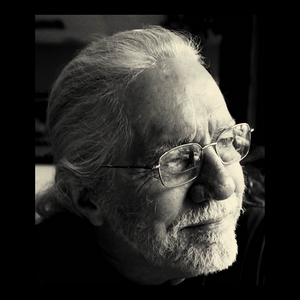When a friend asks, "With such a beneficent and munificent party, how could it have been so shellacked in 2016?" it's a question worth exploring. We've heard all the glib reasons, and we even listed them so that we could put them aside. We explored the logical fallacy of conflating the Democratic Party with liberals. We've examined some of the fundamental flaws in our system of government. But how have those flaws opened the door for a hostile corporate takeover of the institutions of democracy? Let's take a look.
From the beginning, free enterprise was a central tenet of the Founders. Themselves apostles of the Enlightenment, they subscribed to progressive doctrines of the day - including the philosophies of Adam Smith. Smith argued that the body of law ought to protect property rather than persons, citing as evidence that stronger motivations exist for violating the former than for violating the latter. But once the Crown's franchises were disenfranchised, there was no equivalency to today's corporations. States chartered their own corporations, and charters were closely regulated - and if a corporation's operations were found to be contrary to the interests of the state, the charter would be revoked or allowed to expire. In 1789, corporations were not immortal.
I'll spare the reader my narrative of the evolution of corporate power in America - I covered it pretty well in Corporate Capital's War on America. Instead, let's fast forward to the New Deal and the apoplectic response of the corporate community.
In 1940, speaking before the National Association of Manufacturers, Reverend James W. Fifield, Jr. delivered a devastating attack on the Roosevelt Administration and its New Deal. His address galvanized the titans of industry in attendance, and for the first time aligned the goals and agenda of corporate America with the conservative Christian churches who condemned Democratic social programs as the devil's work, socialism, or even communism. On that day, corporate capital found God - and from then on a steady exchange of money and moral authority between them enhanced the political power of both.
In 1957 novelist Ayn Rand published Atlas Shrugged. This unlikely novelist popularized a kind of libertarian extremism that became incredibly influential, especially among leaders in the private sector and even among some in the public sector. Remarkably, it became the handbook for individualism - and not surprisingly it became the basis for small-government dogma. It served to legitimize and serve as an intellectual pillar for the conflation of individual liberty and corporate license. Its influence continues even after sixty years, especially among the enemies of equality.
In 1971, Lewis Powell was approached by the US Chamber of Commerce to prescribe a method by which their influence could be expanded. He responded with an outline that was followed carefully and effectively. The plan involved three basic components. First, corporate America was instructed to assume control of media outlets, especially television. Second, corporations were told to gain control of educational institutions, with emphasis on high schools and universities. Finally, Powell urged the Chamber to vigorously attack their enemies, calling out William Kuntzler, Charles Reich, and Ralph Nader by name. Documentary evidence clearly shows that the Chamber acted on Powell's advice in all three arenas, aggressively and effectively. Corporate influence can be found today as never before in popular media, in college curricula and university campuses, and even behind the cruelest invective that abounds in social media.
Perhaps worse were the second order effects of the Powell manifesto. The Business Roundtable - BRT - augmented the surge of corporate activism in its founding in 1972. To consolidate and amplify its political clout, BRT merged three separate organizations - the March Group, consisting of chief executive officers from large corporations; the Construction Users Anti-Inflation Roundtable, devoted to containing construction labor costs; and the Labor Law Study Committee, largely composed of corporate labor lawyers. From the beginning, the role of the conglomerate was to direct the formation of public policy and oppose organized labor.
Today BRT presents itself as an association of CEOs. Headed by Joshua Bolten, the Board of Directors includes some of the largest American multinational corporations. Among their companies are JP Morgan Chase, Northrop Grumman, Motorola, Cummins, Bank of America, MasterCard, American Express, Lockheed Martin, Dow, Wal-Mart, CVS, Boeing, IBM, and AT&T - virtually the entire military-industrial complex.
How, exactly, does BRT go about achieving its goals of deregulation and privatization? Nobody knows - they don't disclose their revenues or their expenditures. But their influence reflects weight of their economic clout. Their member companies employ more than sixteen million people - nearly fifteen percent of the American workforce - and their revenues exceed $7 trillion a year. You can bet that whenever they want a seat at the table, they won't be denied. So how, exactly, do they do it? They say, "In working with policymakers to help promote economic and job growth in the U.S., Business Roundtable helps to inform federal policy through research, testimony and correspondence with lawmakers."
Perhaps the most insidious organization that opposes liberal America is the American Legislative Exchange Council - ALEC. ALEC reflects the inspiration of the Powell Manifesto from which its guiding principles are drawn. This insidious organization was founded in 1973, reacting to the Nixon Administration's establishment of the Environmental Protection Agency and its intervention in the management of the economy - and perhaps heeding the advice of Lewis Powell. ALEC viewed Nixon as too liberal, and set out to penetrate the institutions of government with the infection of corporate power.
Today its corporate sponsors - including trade associations and 501(c)(4)s, pay up to $25,000 annually for their participation in ALEC. They include Altria, the American Bail Coalition, the American Petroleum Institute, Americans for Tax Reform, AT&T, Bayer, Cato Institute, Charter Communications, Exxon Mobil, Farmers Insurance, GlaxoSmithKline, Heartland Institute, Koch Industries, the National Rifle Association, Newscorp, Peabody Energy, Pfizer, PhRMA, Sprint, State Farm Insurance, Time Warner, United Health, United Parcel Service, US Chamber of Commerce, and Verizon. [5] You can only imagine the nature of the return these organizations earn on their investments.
ALEC boasts a board of scholars that include Rob Natelson, best known for his attempts to legitimize constitutional originalism, and Arthur Laffer, who popularized the trickle down theory of economics during the Reagan Administration. The organization's intellectual underpinnings - such as they are - support unfettered corporatism in all its forms.
Corporate activism was nothing new, but from its inception ALEC was unique in the makeup of its membership and affiliates, and in its method of operation. Of course, it is funded by large corporations - but it provides a legitimized platform for conservative state legislators from every state to partake in the largesse of their benefactors. It goes beyond traditional lobbying into the creation of model legislation that is simply delivered at no cost or expense to their legislators for implementation - along with a bag of money in the form of travel perks and "educational expenses" to lubricate the gears of lawmaking. A legislator attending an ALEC convention gets a nice vacation in a posh resort, child care, and exposure to numerous potential corporate donors and supporters. Lawmakers attending these events find themselves wined, dined, and redefined.
ALEC's influence over state legislatures opened the door for extending its influence over the federal government. Gerrymandering in favor of conservative constituencies is virtually universal among states that practice legislative redistricting - and only a handful prohibit the practice. And voter suppression has been institutionalized beginning with the Supreme Court's 2013 ruling in Shelby County v Holder that gutted the Voting Rights Act of 1965. Within days of the ruling, eight states - mostly in the Confederate South - enacted laws crafted by ALEC to restrict access to the polls previously enjoyed by minorities and liberals. The states, it turns out, are the most formidable opponent of liberal democracy.
Many Americans think that conservatives captured the judiciary with the rejection of Merrick Garland and the confirmation of Neil Gorsuch and Brett Kavanaugh, but they haven't been paying attention. Look to the past. While Lewis Powell himself gained a seat on the Supreme Court in 1971, he was subsequently viewed as a moderate - especially when seen in the shadow of arch conservative Chief Justice William Rehnquist. Like Kavanaugh, Rehnquist was a career GOP legal operative who promoted the Party's interests at any cost.
Conservatism in the legal arena was supercharged in the 1980s as the Reagan mythology spread. Constitutional Originalism became the litmus test for judicial appointments. Paul Brest - the guy who coined the term - defines originalism as, --the familiar approach to constitutional adjudication that accords binding authority to the text of the Constitution or the intentions of its adopters." The Framers themselves didn't give us any such guidance. In fact, originalism wasn't even a thing until 1980. Originalism - like unconstrained greed, trickle-down economics, and runaway inequality - is America's nightmare legacy of the Reagan years.
(Note: You can view every article as one long page if you sign up as an Advocate Member, or higher).





